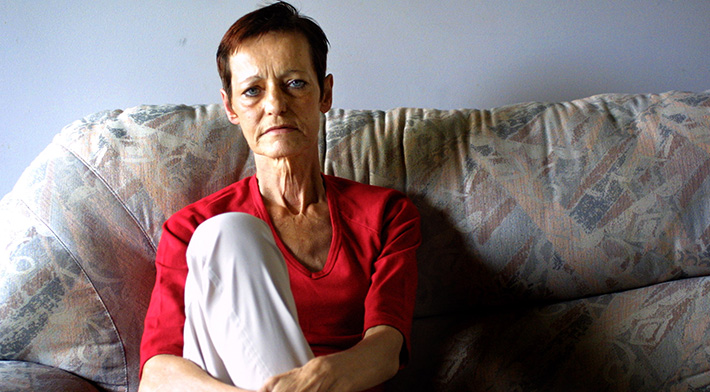
In late 2001, Rolah McCabe commenced a case against British American Tobacco (BAT) Australia in the Supreme Court of Victoria. Rolah was 51 and dying of lung cancer. She had started smoking in the early 1960s at the age of 12. Rolah sued BAT arguing that it had been negligent in its manufacturing and marketing of cigarettes, and that its negligence had caused her lung cancer. She sought damages. Rolah argued that BAT knew that cigarettes were addictive and dangerous to health; took no reasonable steps to reduce the risk of addiction or the health risks; targeted children in its advertising; and ignored or publicly disparaged research results which indicated the health risks of smoking.
The case
In April 2002, Rolah became the first person outside of the United States to obtain a verdict against the tobacco industry in a personal injury claim; though the verdict was overturned on appeal later that year. Rolah obtained the verdict in her favour after the trial judge, Justice Geoffrey Eames, struck out BAT's defence to the proceeding and ordered judgment for her, after finding that ‘the process of discovery in this case was subverted by the defendant and its solicitor... with the deliberate intention of denying a fair trial to the plaintiff, and the strategy to achieve that outcome was successful.’
Justice Eames found that this outcome could not ‘now be cured so as to permit the trial to proceed on the question of liability’. The subversion of the process of discovery had, according to Justice Eames, involved the deliberate destruction of thousands of relevant documents to keep them from prospective plaintiffs such as Rolah; misleading the court about what had become of the missing documents; and the ongoing 'warehousing' of documents to keep them from the court. Justice Eames sent the case to trial before a jury solely on the issue of quantum of damages. The jury awarded Rolah $700,000.
BAT appealed against Justice Eames' decision, and the Court of Appeal unanimously allowed the appeal. In its decision, the Court of Appeal overturned a number of Justice Eames' major findings of fact and conclusions relating to the purpose and propriety of BAT's so-called 'document retention policy', preferring an 'innocent' explanation of the policy and the destruction of documents under the policy. The Court of Appeal also disagreed with Justice Eames about the appropriate means of intervention by courts in cases affected by the unavailability of relevant documents.
The Court of Appeal overturned the judgment that had been made in Rolah’s favour and sent the case back to trial. Rolah died before the Court of Appeal's decision was handed down. Her daughter, Roxanne Cowell, sought special leave to appeal against the Court of Appeal's decision, but the High Court refused the application. The effect of the High Court's refusal was that the Court of Appeal's decision sending the case for trial stood. The case remained in the courts for almost 10 years, before being settled confidentially in March 2011.
International attention
Rolah’s case garnered international attention by exposing BAT’s systematic destruction of thousands of documents under its ‘Document Retention Policy’. Since the hearing took place, evidence has emerged that supports Justice Eames' version of events, namely that the purpose of BAT's document retention policy was to keep incriminating documents out of court.
Legacy
The case has had profound lasting effects. The evidence that the case uncovered was used by the US Department of Justice in its multi-billion dollar lawsuit against the US tobacco industry under anti-racketeering law. The case led to the enactment of new Victorian civil and criminal legislation relating to document destruction. More than ten years on, it is routinely taught in Australian law schools in subjects on civil litigation and legal ethics.